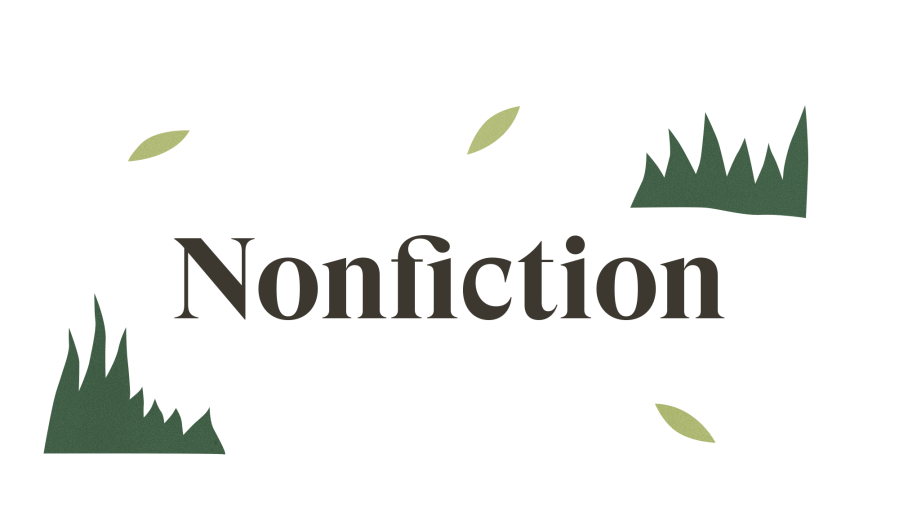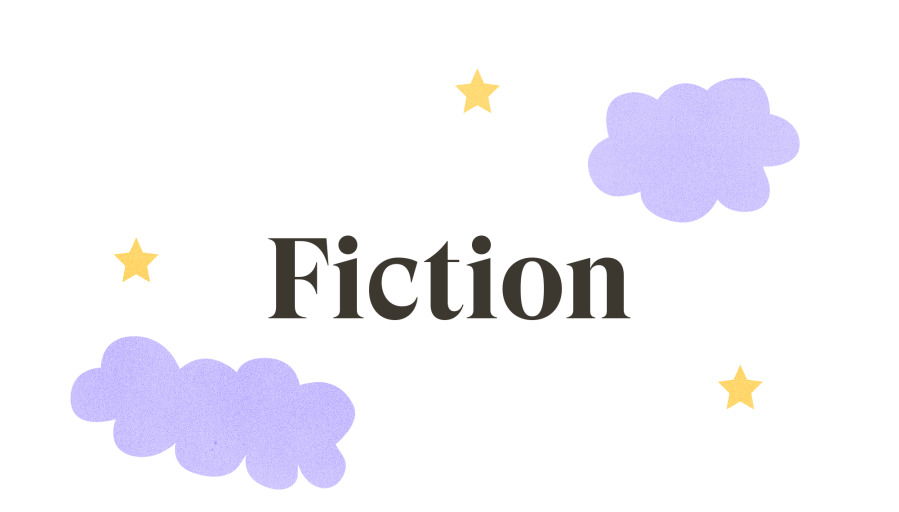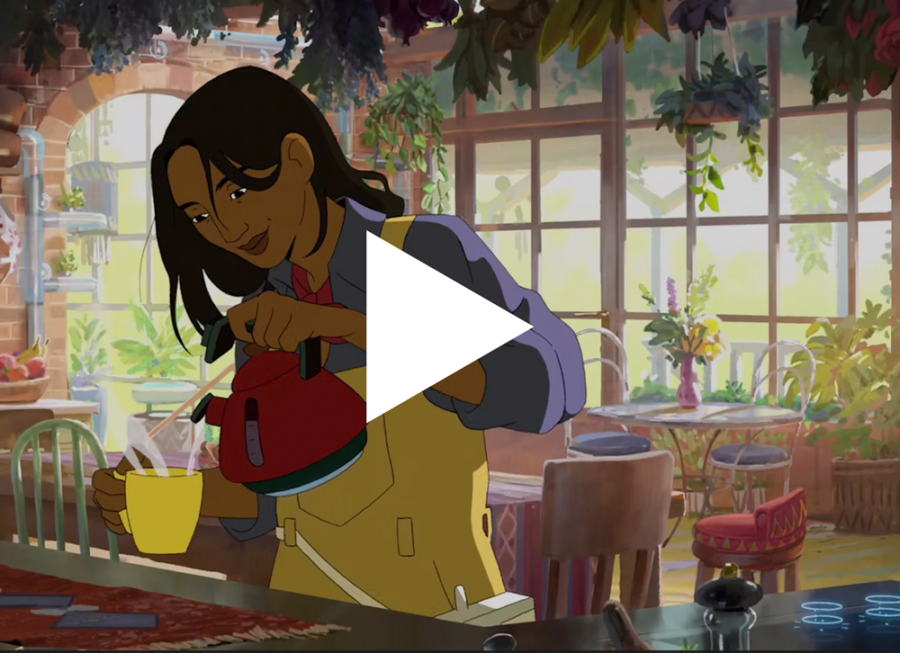
The vision
“The world is full of painful stories. Sometimes it seems as though there aren’t any other kind and yet I found myself thinking how beautiful that glint of water was through the trees.”
— Octavia E. Butler, Parable of the Sower

The spotlight
Books are windows into other worlds. From memoirs to poetry collections to fantasy novels, books take us into other people’s lives and offer us thoughts and feelings we may never have had before — some that can change the way we move through the “real” world.
So when many of you answered the call of “what gives you hope” with book recommendations, we knew we had to collect those inspiring titles and share them with the whole fam. Thank you to everyone who sent in recs! It’s been a delight to learn about the variety of stories that have moved you, and we’re excited to share them here as our reader-recommended summer reading list.
Two standout books were recommended by several of you — one fiction, one nonfiction. So if we were to declare winners of this reading list, those would have to be The Ministry for the Future, by Kim Stanley Robinson, and All We Can Save, an anthology edited by Ayana Elizabeth Johnson and Katharine K. Wilkinson.
The latter features contributions from 60 inspiring women at the forefront of climate leadership. A powerfully hopeful missive, it contains lessons from teenage activists, policy experts, farmers, artists, and more. Like the title of the first essay, by climate justice activist Xiye Bastida, the entire book is a kind of “calling in.”
“By including poetry and art alongside the essays, the anthology invites readers to bring their whole selves to the topic. Head, heart, and hands all have a place here,” Wilkinson told me in an email. She and Johnson wanted to offer readers a variety of ways to connect and identify with the voices and work reflected in the collection. They hoped “that the anthology would be not just a reflection of the ‘we’ rising to meet this moment, but a way to nourish and expand a much broader ‘we’ for all we can save.” (Check out the ongoing All We Can Save Project here.)
Looking Forward reader Betsy Ruckman found similar takeaways in Ministry for the Future, a novel set in the not-too-distant future that shows humanity grappling with the effects of the climate crisis while attempting to advocate for future generations. “This book is resoundingly anti-dystopian,” she says. “It reminds us that the world will go on turning, and that its future rests on the shoulders of the many, many people who refuse to give up, and who work to create that just and equitable future.” (Listen to her talk more about the book with her college librarian.)
Since these two clearly struck a chord with many of you, we’d like to invite y’all into a sort of newsletter-based book club. If you’ve already read All We Can Save or Ministry for the Future, or if you’re gonna after hearing these glowing recommendations, share your takeaways with us! More deets down below.
Here are some more titles that Looking Forward readers suggested adding to your summer reading list:

Braiding Sweetgrass, by Robin Wall Kimmerer. Recommended by reader Jess Savage. This book of essays weaves together science, Indigenous wisdom, and a profound respect for the natural world. As a botanist and a member of the Citizen Potawatomi Nation, Kimmerer shows all that we have to learn from plants. Jess says, “It is giving me so much to think about and hope for.”
Making Peace with the Land: God’s Call to Reconcile with Creation, by Fred Bahnson and Norman Wirzba. Recommended by reader Sarah M. As the title would suggest, this is a deeply religious book — a good fit for anyone who wants that unique perspective on climate work. Sarah says, “It brings together my faith and my concern for the land I live on.”
Under the Sky We Make, by Kimerly Nicholas. Recommended by reader Anne Fuller. The author’s mantra just about sums it up: “It’s warming. It’s us. We’re sure. It’s bad. But we can fix it.” In this book, Nicholas, a professor and sustainability scientist, dives into the personal facets of the climate crisis and the agency that individuals have to effect change. Anne calls it “frank and inspirational at the same time.”

The Monk & Robot series, by Becky Chambers. This “hopeful solarpunk” series comes recommended by reader Ruby Foxall. In the first book, A Psalm for the Wild-Built, Chambers builds a lush, care-filled world, where robots long ago gained self-awareness and retreated from society, but one returns to honor its ancient duty of checking in on humanity. Fellow fiction writer Alexandra Rowland calls it a “soft hug of a book. … It felt like a warm cup of tea made by someone who loves me.” The second novel in the series is expected next month.
Light From Uncommon Stars, by Ryka Aoki. This rec is from Fix senior editor Chuck Squatriglia, who says, “It is an amazing mashup of two wildly divergent genres: the ‘sold my soul to the devil’ genre and ‘aliens escape a dying galaxy’ genre — starring a trans girl and two queer women. It is one of those rare books that I didn’t want to end because it is so good, but I also could not wait to see how it ends.”
And last but not least, I’m throwing a couple of my own favorites into the ring:
Parable of the Sower (and its sequel, Parable of the Talents), by Octavia E. Butler. These amazing novels are Cli-Fi 101 in my book, so if you haven’t already read ’em, start readin’. Although the future that Butler paints is grim, there’s an undeniable flicker of hope in the characters who keep on living, building community, and caring for each other and the little corner of the earth they’re able to salvage, despite the violent change all around them that they cannot fully control.
Weather, by Jenny Offill. In an entirely different vein, this short novel is a close look at climate anxiety, and the small preparations a mother in New York attempts to make as she learns more about the climate crisis. It plays with the dichotomy between planetary concerns and daily-life concerns in a smart, engaging, and at times utterly hilarious way.
— Claire Elise Thompson
More exposure
- Read: even more! Check out Fix’s definitive climate-fiction reading list, from our (ahem, newly award winning) Climate-Fiction Issue
- Read: a piece exploring the power of fiction to influence real-life climate justice efforts (Fix)
- Browse: This glossary of climate-fiction terms, like “solarpunk” and “ecotopia,” could be a useful resource if you’re new to the extended cli-fi universe (Fix)
- Browse: The New York Times put together a something-for-everyone climate reading list in honor of the 50th Earth Day in 2020. (Click it for the lead graphic alone.)
- Subscribe: Burning Worlds is a monthly newsletter from Amy Brady exploring climate change in art and literature through interviews with authors, poets, visual artists, and more (including Fix’s own climate fiction creative manager Tory Stephens)
See for yourself
Join us on a summer reading journey. We would love to hear what lessons you all took from All We Can Save and Ministry for the Future. Reply to this email to tell us: a) If you’ve already read one or both, how did it make you think, feel, or act differently about the climate crisis and your role in addressing it? What were some of your favorite parts, what challenged you, what absolutely rocked your world?
Or, b) If you’re planning on reading one or both, just tell me that! I’ll admit I haven’t yet read Ministry for the Future. (But when you lose track of the number of people who have recommended a book to you, it’s probably high time to crack it open. So! I’m ordering it today. We could keep each other accountable, if you like.)
If enough of you have read these books or plan to, we’ll figure out how to turn it into a real book club. Maybe via a future newsletter? Maybe a small Zoom gathering to discuss the books together? Reading (much like climate action!) is better with buddies — so let me know what you’re game for.
A parting shot
Solarpunk isn’t just the stuff of novels. It’s also on fine display in this charming animated short, “Dear Alice.” (And yes, it is … a Chobani ad. If that doesn’t sit well with you, you can also watch a “decommodified” version here.)




